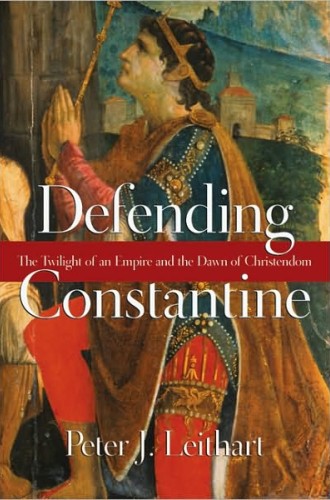A review of Defending Constantine
Asking me to write a review of Peter Leithart's defense of Emperor Constantine may seem like asking the fox to inspect the henhouse. My work, after all, has been closely identified with that of John Howard Yoder and in particular with Yoder's critique of Constantinianism. Leithart, moreover, makes clear that though Defending Constantine is a biography of Constantine, his primary purpose is theological—he has written his book in defense of Constantine and to provide a critique of the work of Yoder. Not exactly a project designed to warm this theologian's heart.
But I think Leithart has written an important book that does more than help us to better understand the complex human being who bore the name Constantine. More significantly, Leithart's criticisms of Yoder's account of Constantinianism is one that Yoder would have appreciated and taken seriously. For unlike many who criticize Yoder, Leithart has actually read him appreciatively. He understands that even if Yoder does not get the "historical Constantine" right, that does not mean Yoder's case against Constantinianism is mistaken. The history matters, Leithart makes clear, but how it matters is finally a theological question.
Leithart has done his historical homework. As far as I can judge, he uses the best scholarship available to develop an engaging biography of Constantine as emperor and human being. To make a long story short, Leithart argues convincingly that Constantine was a real Christian; that the significance of his vision of the cross before his victory at Rome is confirmed by his subsequent action; that though he was not a subtle theologian, he was convinced that the Christian God is the heavenly Judge who opposes those who oppose him; and that Constantine's interventions at Nicaea were appropriate and substantial. Leithart acknowledges that Constantine's Christianity did not qualify his war-making proclivities, nor did it make him less a Roman politician who, when necessary, was ready to execute those close to him. Nonetheless, Leithart makes the case that Constantine was a much more complex figure than the stereotypes suggest.



